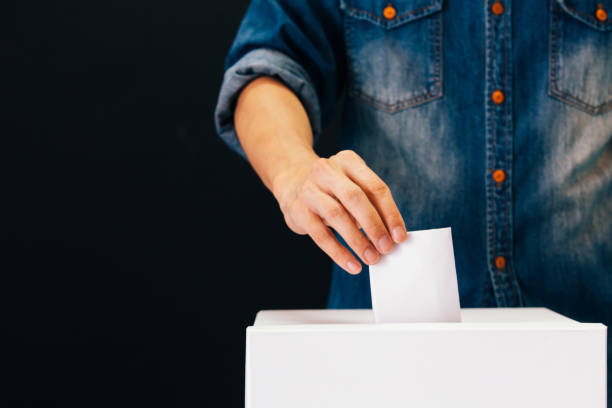Election 2020: High Stakes, High Turnout and the Highlights from Rockhurst Students
December 3, 2020
Rockhurst students were engaged in what was happening in national, state, and local elections this year.
Following four contentious days of counting, most major media outlets projected former Vice President Joseph R. Biden, Jr as the winner of the 2020 Presidential election. As of December 8, 2020, President Donald J. Trump has yet to concede, citing widespread electoral fraud, which has been refuted by 45 state Secretaries of State and the Department of Homeland Security. Legal challenges continue in a number of swing states, but 38 states have already certified their results.
President-elect Biden, a native of Scranton, Pennsylvania, garnered 306 electoral votes. 270 are needed to win the U.S. Presidency. Mr. Biden’s tally came mostly from the Northeast, Upper Midwest, and the Western United States. Mr. Biden surprised many political observers by winning former Republican Party strongholds of Arizona and Georgia; the latter of which had not voted for a Democratic Party candidate since former President Bill Clinton of Arkansas narrowly carried the state in 1992.
Nationally, Mr. Biden won a majority of the popular vote: 51% voted for the challenger, the best showing against an incumbent President since Franklin D. Roosevelt defeated Herbert Hoover at the apex of the Great Depression in 1932.
Mr. Trump solidified his hold on the Southern and Midwestern United States, receiving nearly 11 million more votes nationally than in the 2016 Presidential election, but was unable to expand his electoral map, receiving 232 electoral votes. Mr. Trump hemorrhaged five states to Mr. Biden, and lost the popular vote by roughly the same percentage, but was competitive in enough states to hold the overall result in doubt for several days.
Political science student Nathan Mark, commenting on the trends emerging on Election Night, told The Sentinel, “Watching election night coverage was absolutely enthralling. …It was pretty obvious we were seeing a ‘Red Mirage’ in states like Pennsylvania, Wisconsin and Michigan. But I didn’t see Georgia and Arizona flipping [to the Democrat, Biden] along with those three.”
In the days leading up to November 3, Rockhurst students held Voter Registration Drives, and the RU College Democrats and Republicans held semi- virtual events for both Presidential debates. Many students eagerly (or perhaps nervously) awaited the returns on Election Night.
Mr. Biden, 78, will be the oldest President in American history at the time of his inauguration, and holds the distinction of being the second Catholic to hold the post, after John F. Kennedy.
Incumbent presidents are rarely defeated.
Mr. Trump joins Gerald Ford, Jimmy Carter, and George H.W. Bush as only the fourth President to lose re-election since 1945.
Nearly two thirds of all registered voters cast a ballot, a feat unmatched since the election of 1900 between Nebraska Congressman William Jennings Bryan and President William McKinley.
In exit polling, voters cited five major issues as decisive in their pick for the Chief Executive: who would lead best on the economy, handle COVID-19, racial justice, crime and safety, and healthcare policy. Voters who prioritized the economy, as well as crime and safety, generally preferred President Trump, whereas those concerned with the pandemic, race relations, and the future of the Affordable Care Act (ACA), swung toward the former Vice President.
In other national contests, the Democratic Party underperformed expectations, but maintained a slim majority in the United States House of Representatives. Control of the United States Senate hinges on a rather unique electoral phenomenon: two runoff races in Georgia will determine whether Mr. Biden has a friendly or potentially adversarial relationship with the upper chamber of the legislative branch.
In Missouri, Governor Mike Parson outperformed the top of the Republican ticket, soundly defeating State Auditor Nicole Galloway with nearly 60% of the vote. Representative Emmanuel Cleaver II was re-elected to a ninth term in Missouri’s 5th Congressional District, which encompasses Rockhurst University and most parts of the greater Kansas City area.
On Election Day, some students casted their ballots. Others, such as sophomore Zeke Frederick, worked the polls. Frederick said that the process was “super-smooth and a lot of fun.”
“You get to help people do their civic responsibility of voting and you get to meet so many different people,” he said.
Regarding local voting conditions in Jackson County, where Rockhurst is located, Frederick said poll workers “made sure it was as safe as we could do it during a pandemic. Very hygienic. I had maybe one person not wear a mask.” Frederick encouraged fellow student citizens to become a part of the electoral process, noting that “It’s a long day but always worth it for the memories and the friendships you make.”
The Electoral College will meet in 50 state capitals on December 14, 2020 to certify the election of the President and Vice President-elect. A joint session of Congress will read aloud the votes, and pending no objection, officially tally the results, culminating in an Inauguration ceremony on January 20, 2021.
Edited by Micaela Gutierrez


